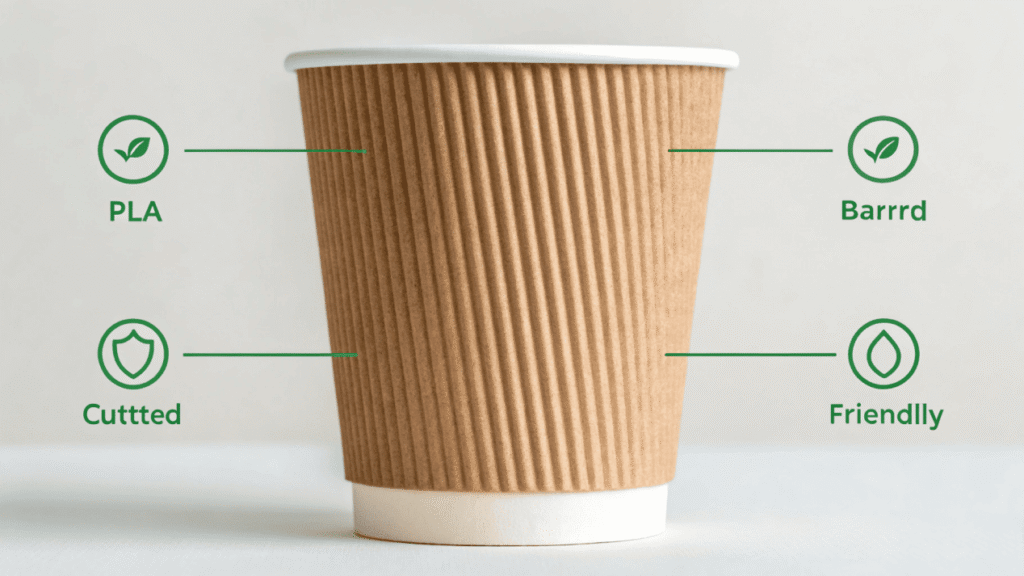You want to make an eco-friendly choice, but the world of "sustainable" packaging is confusing. You're worried about "greenwashing" and making a costly mistake that doesn't help the planet.
Choose cups made from FSC-certified paper with a compostable PLA lining instead of a traditional PE plastic one. Always verify your supplier's claims with official third-party certifications like BPI or CMA.
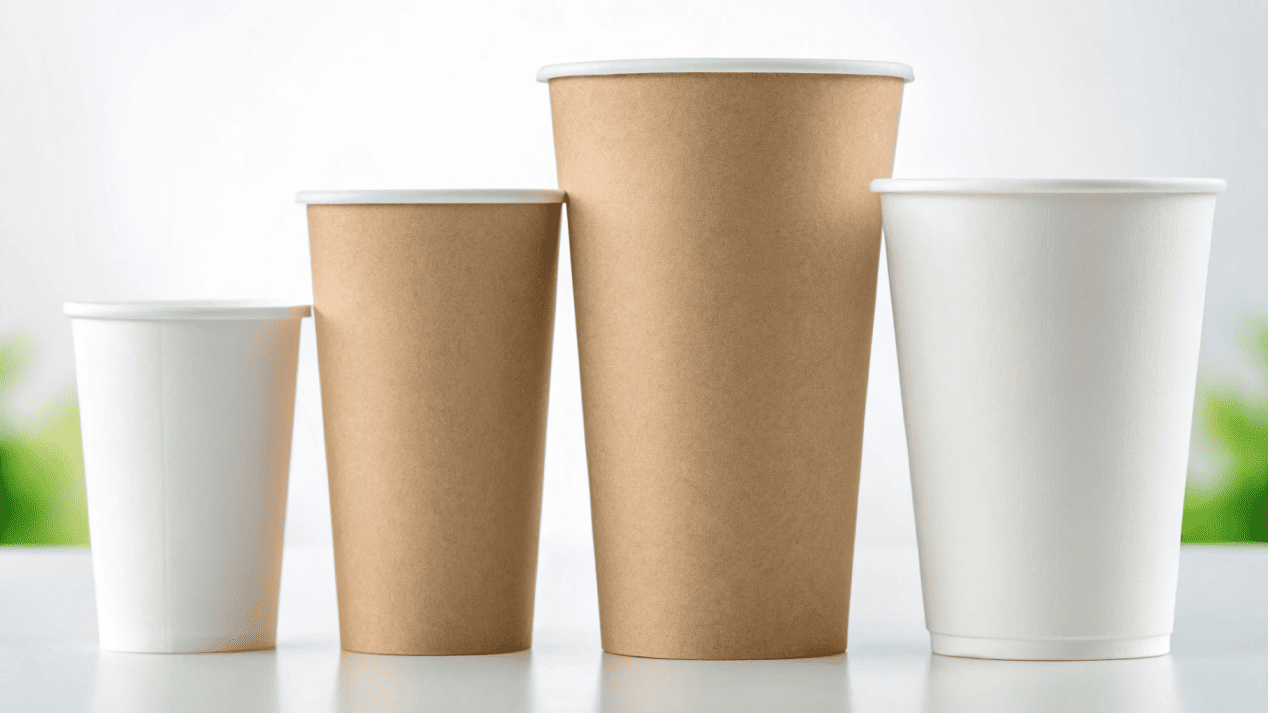
Over my 15 years in this industry, the biggest shift I've seen is the demand for sustainability. But with this demand comes a lot of confusing terms. I had a client, a small cafe owner, who thought "paper cup" automatically meant "eco-friendly." He was shocked when I explained that the plastic lining in his standard cups meant they would likely end up in a landfill. Making the right choice is about understanding what a cup is actually made of.
What Are Sustainable Cups Actually Made Of?
You see labels like "eco-friendly" and "green," but they don't tell you much. Is it the paper? The inner lining? Without knowing, you could be paying more for a false promise.
Truly sustainable cups are defined by two parts: the paper, which should be from a responsibly managed forest (FSC certified), and the waterproof lining, which should be a compostable bioplastic (PLA) instead of oil-based plastic (PE).
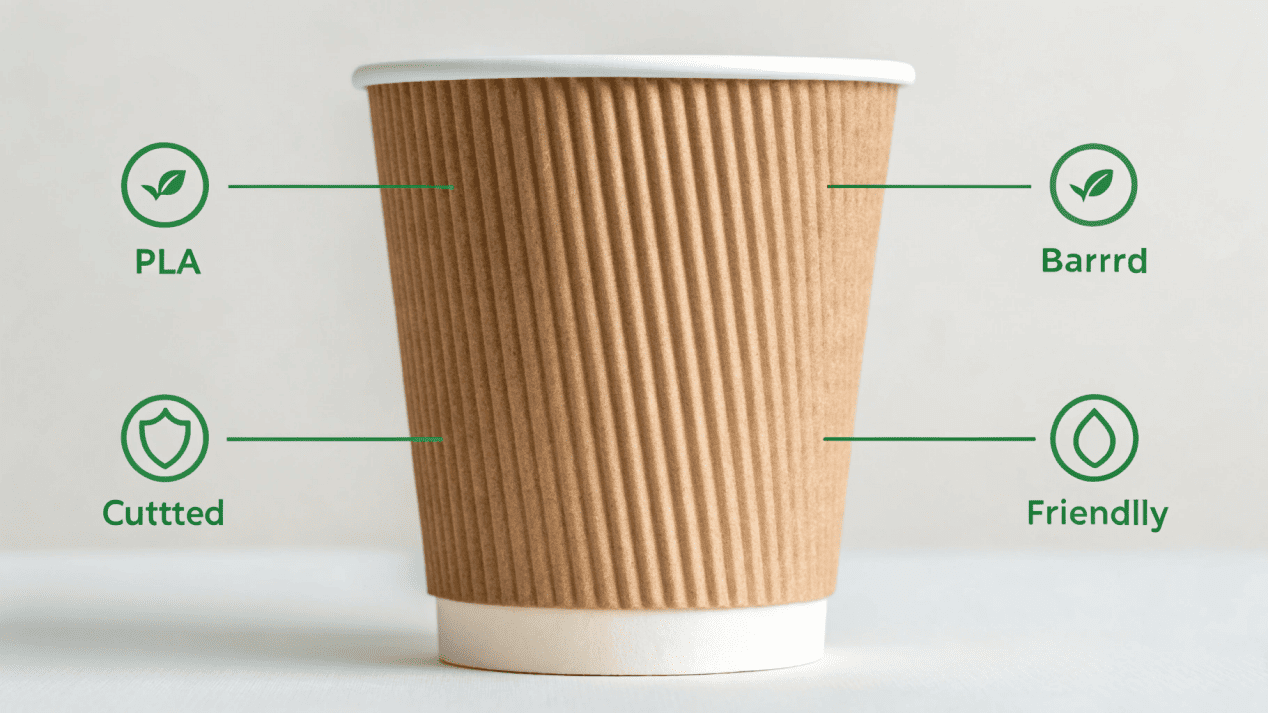
From an engineering standpoint, a paper cup is a simple structure, but its environmental impact comes down to these two components. Getting both right is the key to genuine sustainability.
The Paperboard Source
The first thing to consider is the paper itself. It can come from a few places, but not all are equal.
- Virgin Pulp: This is paper from new wood. To ensure it's sustainable, you must look for paperboard from responsibly managed forests. That's what an FSC (Forest Stewardship Council) certification guarantees. It means the forest is being managed in a way that preserves biodiversity and benefits the lives of local people.
- Recycled Pulp: Using post-consumer recycled materials is another good option, as it reduces the demand for new trees to be cut down.
The Inner Lining: The Biggest Challenge
The waterproof lining is where most cups fail the eco-friendly test.
- Polyethylene (PE): This is the traditional lining. It's a plastic derived from petroleum. While it does its job well, it's very difficult to separate from the paper fiber, making the cup non-recyclable in most standard facilities.
- Polylactic Acid (PLA): This is the modern, sustainable solution. PLA is a bioplastic made from renewable resources like corn starch. Cups lined with PLA are commercially compostable, meaning they can break down into organic matter in an industrial composting facility.
- Aqueous Coatings: This is a newer technology. It's a water-based coating with minimal plastic content, designed to be compatible with standard paper recycling streams, which is a huge advantage.
| Lining Type | Source Material | End-of-Life |
|---|---|---|
| PE | Petroleum (Fossil Fuel) | Landfill |
| PLA | Corn Starch (Renewable) | Commercial Composting |
| Aqueous | Water-based | Paper Recycling Stream |
Are Sustainable Cups Too Expensive For My Business?
You want to make the right choice for the planet, but your budget is tight. The higher price tag on eco-friendly cups can seem like a major barrier to getting started.
While sustainable cups can cost 20-30% more upfront due to material costs, this price gap is closing. This extra cost should be seen as a marketing investment that builds brand loyalty.
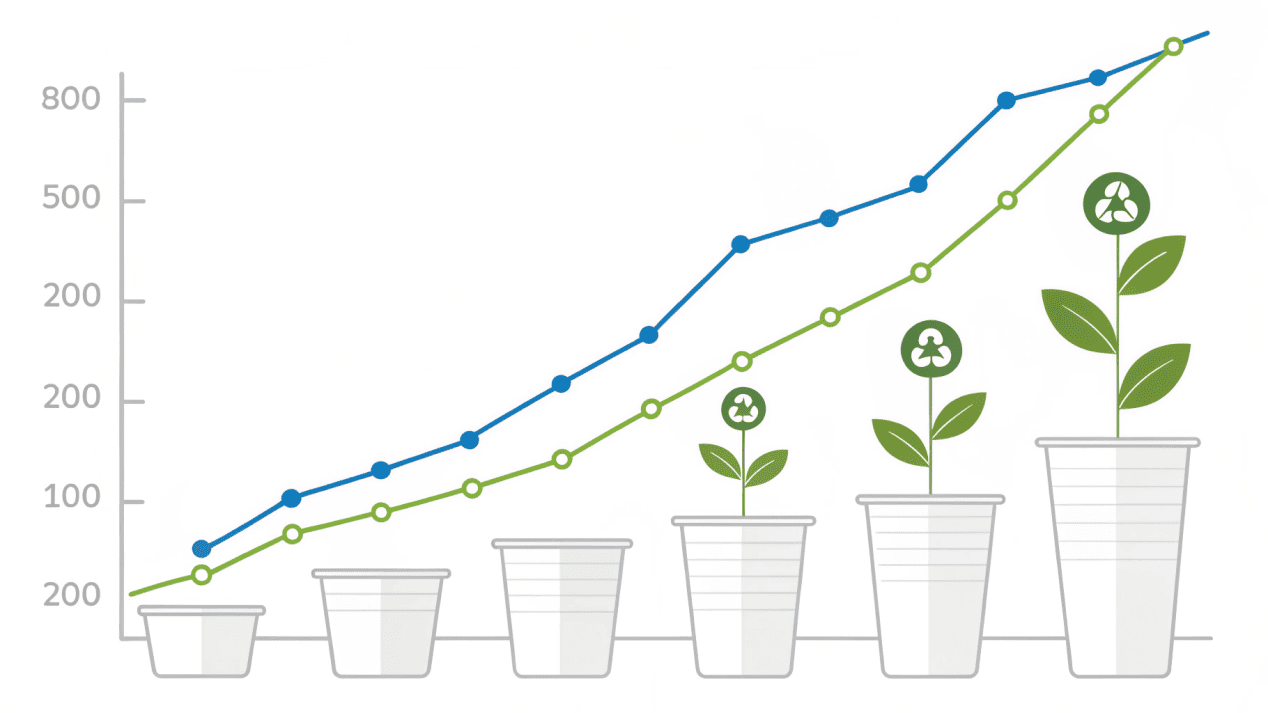
I talk about cost with my clients every single day. It's true that the raw materials for PLA and the processes to make compostable cups are currently more expensive than the massive, decades-old PE infrastructure. However, viewing this only as an expense is short-sighted. It's an investment in your brand's future.
Thinking Beyond the Unit Price
One of my clients runs a coffee shop in a very competitive neighborhood. He switched to our PLA-lined cups and put up a small sign explaining what they were. He told me that customers noticed immediately. They felt good about their purchase, became more loyal, and even started conversations about it. The small extra cost per cup was easily paid back in customer retention and positive word-of-mouth. Here's how to think about the return on investment:
- Enhanced Brand Image: Using sustainable packaging instantly tells your customers that you are a modern, responsible brand. This builds trust and sets you apart from competitors.
- Meeting Customer Demand: Consumers are actively seeking out and are often willing to pay more for products from brands that share their values. You are meeting a direct demand in the market.
- Future-Proofing Your Business: Governments around the world are introducing new regulations to reduce single-use plastic waste. By adopting sustainable options now, you are staying ahead of the curve and avoiding future penalties or forced changes.
How Can I Spot Real Eco-Friendly Cups and Avoid 'Greenwashing'?
Every supplier claims their cups are "green" and "earth-friendly." It's impossible for you to know what's a real environmental benefit and what's just clever marketing language.
Ignore vague marketing terms. Look for official, third-party certification logos directly on the product or provided by the supplier. Key logos to know are FSC for the paper and BPI or CMA for compostability.
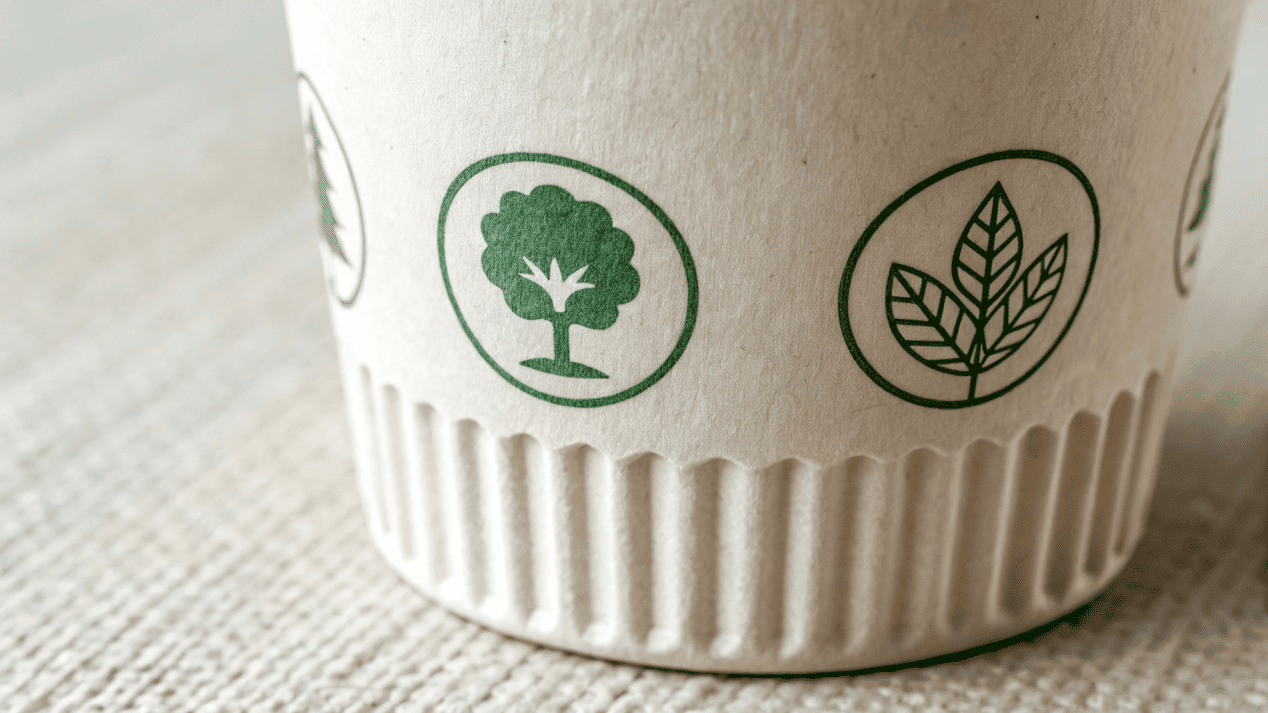
"Greenwashing" is when a company spends more time and money marketing themselves as environmentally friendly than on actually minimizing their environmental impact. It's a huge problem in our industry. The only way to fight it is to rely on proof from independent, internationally recognized organizations. These certifications are your guarantee that a product is what it claims to be.
Certifications for the Paper Source
- FSC (Forest Stewardship Council): This is the global gold standard. When you see the FSC logo, it means the paper comes from forests that are managed responsibly to protect workers' rights, indigenous peoples' rights, and the forest ecosystem.
- SFI (Sustainable Forestry Initiative): This is another certification, prominent in North America, that also indicates sustainable forestry practices.
Certifications for Compostability
- BPI (Biodegradable Products Institute): This is the leading certification for compostable products in North America. The BPI logo means a product has been scientifically tested and proven to break down safely in a commercial composting facility.
- CMA (Compost Manufacturing Alliance): This certification is also crucial. Where BPI tests in a lab, CMA performs field tests in real-world, large-scale composting operations to ensure the products are compatible with their processes.
| Certification | What It Verifies | What It Applies To |
|---|---|---|
| FSC | Paper from responsibly managed forests | The Paperboard |
| BPI | Product is compostable in a commercial facility (Lab-tested) | The Entire Cup (with PLA lining) |
| CMA | Product is compatible with real-world composters (Field-tested) | The Entire Cup (with PLA lining) |
How Do I Choose a Reliable Supplier for Sustainable Cups?
You know what certifications and materials to look for, but finding a manufacturing partner who is honest, transparent, and truly an expert can be the hardest part of the process.
Choose a partner who is transparent. They should happily provide certification documents, explain their supply chain, offer a range of eco-options, and act as an expert guide, not just a salesperson.
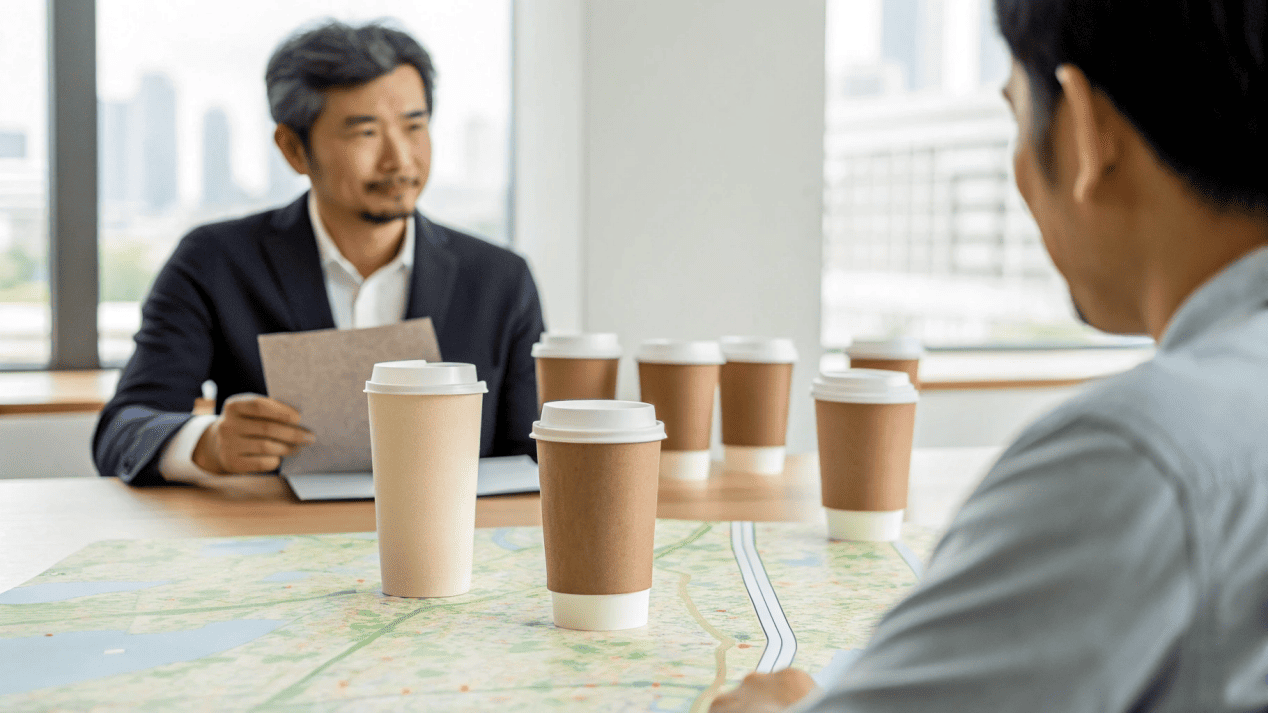
Your supplier is your link to the entire supply chain. Their integrity determines the integrity of your product. A cheap supplier with questionable claims is a huge risk to your brand. From my experience helping clients source packaging for over a decade, I've learned that you must ask tough questions to find a true partner. Don't be afraid to vet them thoroughly.
A Checklist for Choosing Your Partner
Here are the questions I encourage all my clients to ask any potential supplier:
- "Can you provide me with the official documentation for your FSC, BPI, or other certifications?" A trustworthy supplier will have these ready and be proud to share them. If they hesitate, it's a major red flag.
- "Can you explain the end-of-life options for this cup in my specific region?" A true expert will understand that compostability depends on local infrastructure and can guide you on the most responsible way to message this to your customers.
- "What is your quality control process for ensuring a consistent product?" You need to know that the 10,000th cup will be just as good as the first sample you approved.
- "What are my options for different sustainable materials?" A good partner is invested in the industry and should be able to offer a range of solutions—like PLA-lined, aqueous-coated, or recycled-content cups—and explain the pros and cons of each for your specific business.
Conclusion
Choosing a sustainable cup is a powerful statement for your brand. By focusing on certified materials like FSC paper and PLA linings, you can make a choice that is both genuine and valuable.
